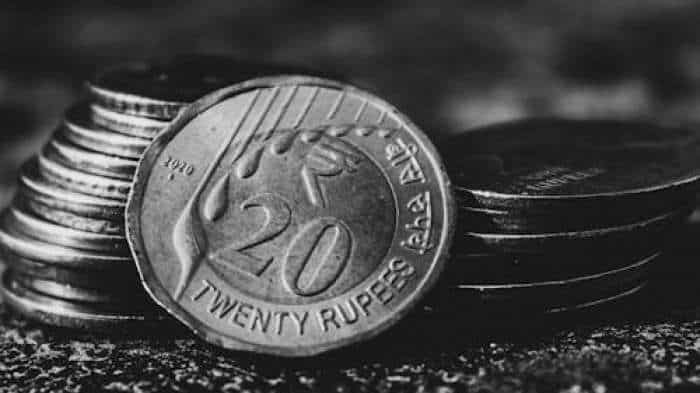Oil, Gas Sector Alert! Reform and revival - Inside details of Modi government's possible steps | Specialist wing under Petroleum Ministry
After giving more attractive terms under its new hydrocarbon exploration licensing policy (HELP), the government is now likely revive plans to reform the regulatory framework in the oil and gas sector by arming the office of upstream regulator Directorate General of Hydrocarbons (DGH) with statutory powers

After giving more attractive terms under its new hydrocarbon exploration licensing policy (HELP), the government is now likely revive plans to reform the regulatory framework in the oil and gas sector by arming the office of upstream regulator Directorate General of Hydrocarbons (DGH) with statutory powers. This will be in conjunction to another plan to carve out a specialist wing under the Petroleum Ministry for assisting it in administration of contracts.
Though Petroleum Minister Dharmendra Pradhan had earlier ruled out statutory status for DGH, saying the sector has not fully developed and needs government support, a source close to the developments in the ministry said that the plan is being revived again to prevent a clash of interest in DGH's regulatory operations. Also, the policy environment has undergone several reforms and it is felt that the sector would now grow on its own.
DGH is currently not just formulating regulations for exploration and production (E&P) activities under the guidance of the Petroleum Ministry, but is also responsible for administering contracts, even for government-owned companies such as Oil and Natural Gas Corporation (ONGC) and Oil India Ltd (OIL). It also assists the government in auctioning oil and gas exploration fields.
According to the revised plan, which is still in discussion stage, the office of the DGH would be distanced from the government and placed in a statutory body that will give the regulatory regime more teeth and functional autonomy.
But the government will retain some of the talent from existing DGH to create a special wing on the lines of the Central Electricity Authority and the Telecommunications Engineering Centre. This wing will fill the vacuum created by separation of DGH and help the Petroleum Ministry on technical issues related to administration of contracts for oil and gas blocks. This will require competent resources with the ministry.
"World over, regulators function independent of the government so that these is no clash of interest. This is especially true in the case of India, where the government is the majority shareholder in oil and gas companies. The proposed move for separation of regulatory and administrative powers of DGH would usher in a new era for country's energy sector," said an energy sector expert not willing to be named.
Government think tank Niti Aayog has also favoured strengthening the office of DGH by giving it statutory powers. In fact, in its draft National Energy Policy, which is being finalised soon, it has said that upstream regulatory regime and contract administration need to be separated for an arms-length administration of upstream matters.
In 2011, the Ashok Chawla committee had suggested that the DGH be turned into an 'independent technical office' attached to the Petroleum Ministry and an upstream regulator be established to focus on regulatory functions.
Another panel in 2001 had recommended the setting up of an Upstream Hydrocarbon Regulatory Board, giving DGH a techno-administrative role as a part of the Petroleum Ministry. The 2013 Vijay Kelkar committee had also suggested hiving off conflicting interests of the DGH while numerous parliamentary standing committees to favoured statutory role for the upstream regulator.
The proposed regulatory reforms comes on the back of a series of initiatives taken by the Petroleum Ministry in recent months to improve regulations and make the country an attractive destination for investment by global oil and gas giants.
The government has already started the process of auction of major fields from July this year under the revamped policy that gives both marketing and pricing freedom for gas production.
In addition, blocks are being auctioned under the open acreage policy that gives the bidder the choice of selecting the prospecting area. All this is part of the new Hydrocarbon Exploration and Licensing Policy announced by the government earlier.
The DGH was established in 1993 under the administrative control of Ministry of Petroleum & Natural Gas through a government resolution.
Its objectives are to promote sound management of oil and natural gas resources with a balanced regard for environment, safety, technological and economic aspects of petroleum activity.
DGH has been entrusted with several responsibilities like implementation of New Exploration Licensing Policy (NELP), matters concerning the production sharing contracts (PSCs) for discovered fields and exploration blocks, promotion of investment in E&P sector and monitoring of E&P activities, including review of reservoir performance of producing fields. In addition, the DGH is also engaged in opening up of new unexplored areas for future exploration and development of non-conventional hydrocarbon energy sources like Coal Bed Methane (CBM), as also futuristic hydrocarbon energy resources like Gas Hydrates and Oil Shales.
Get Latest Business News, Stock Market Updates and Videos; Check your tax outgo through Income Tax Calculator and save money through our Personal Finance coverage. Check Business Breaking News Live on Zee Business Twitter and Facebook. Subscribe on YouTube.
RECOMMENDED STORIES

Power of Rs 3,000 SIP: In how many years, Rs 3,000 monthly investment can generate corpuses of Rs 2 crore and Rs 3 crore? Know here

Power of Compounding: How can you create Rs 5 crore, 6 crore, 7 crore corpuses if your monthly salary is Rs 20,000?

Power of Compounding: Rs 5 lakh lump sum investment in 3 flexi schemes has grown to at least Rs 15.5 lakh in 5 years; see list

after bumper 2024 rs 2 lakh crore worth ipos expected in 2025 primary market nsdl avanse financial ecom express sebi approval

Rs 1,000 Monthly SIP for 40 Years vs Rs 10,000 Monthly SIP for 20 Years: Which can give you higher corpus in long term? Calculations inside
05:48 PM IST








 PM Modi to launch Rs 7,000 crore projects in Prayagraj; inspect development work for Mahakumbh Mela
PM Modi to launch Rs 7,000 crore projects in Prayagraj; inspect development work for Mahakumbh Mela Vladimir Putin says Russia is ready to set up its manufacturing operations in India; hails 'Make in India' initiative
Vladimir Putin says Russia is ready to set up its manufacturing operations in India; hails 'Make in India' initiative  PM Modi to attend all India DGP/IGP conference in Odisha's Bhubaneswar today
PM Modi to attend all India DGP/IGP conference in Odisha's Bhubaneswar today PM Modi to inaugurate Rising Rajasthan Global Summit in Jaipur on December 9
PM Modi to inaugurate Rising Rajasthan Global Summit in Jaipur on December 9  PM Modi to inaugurate development works in Prayagraj on December 13: CM Yogi Adityanath
PM Modi to inaugurate development works in Prayagraj on December 13: CM Yogi Adityanath